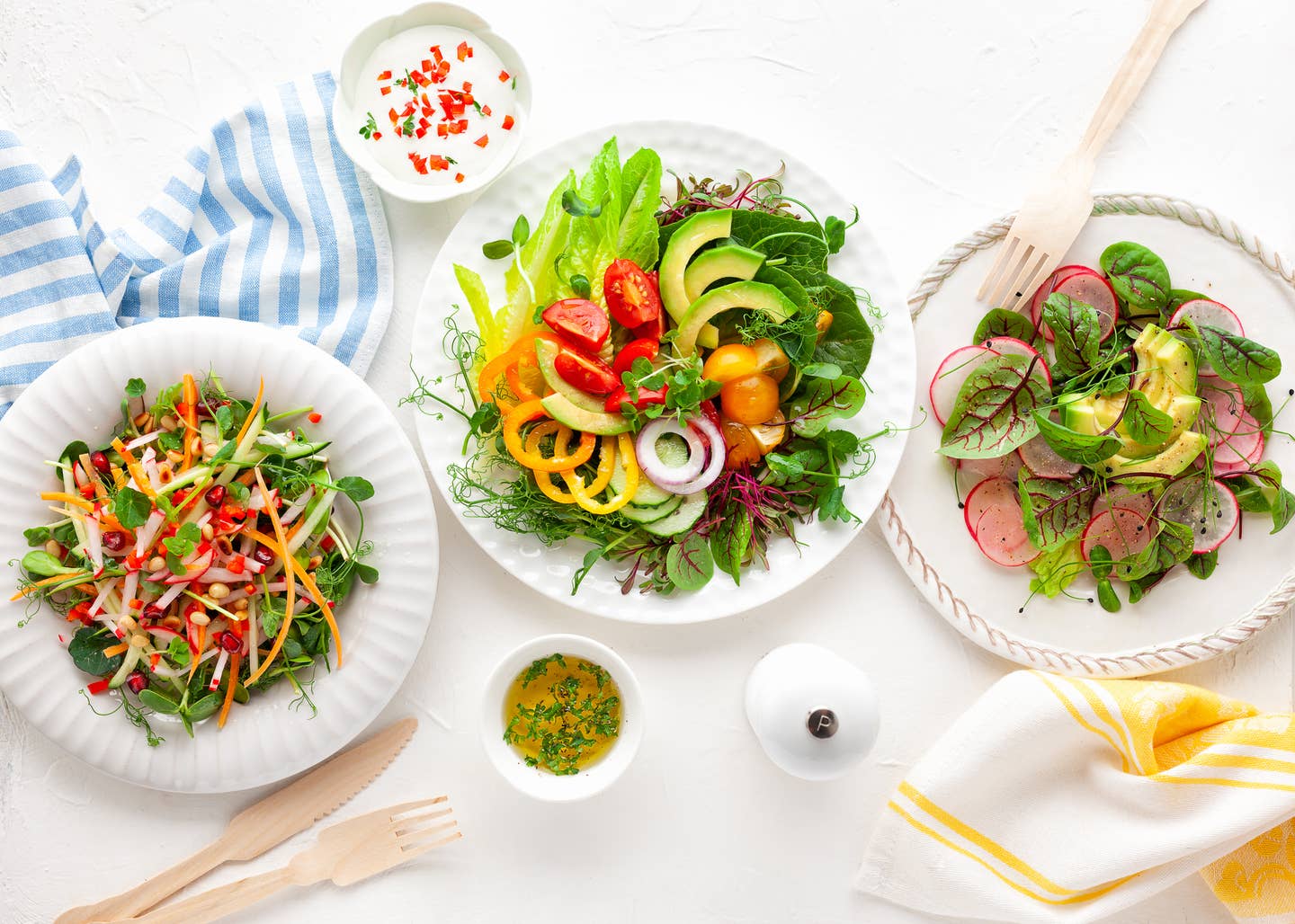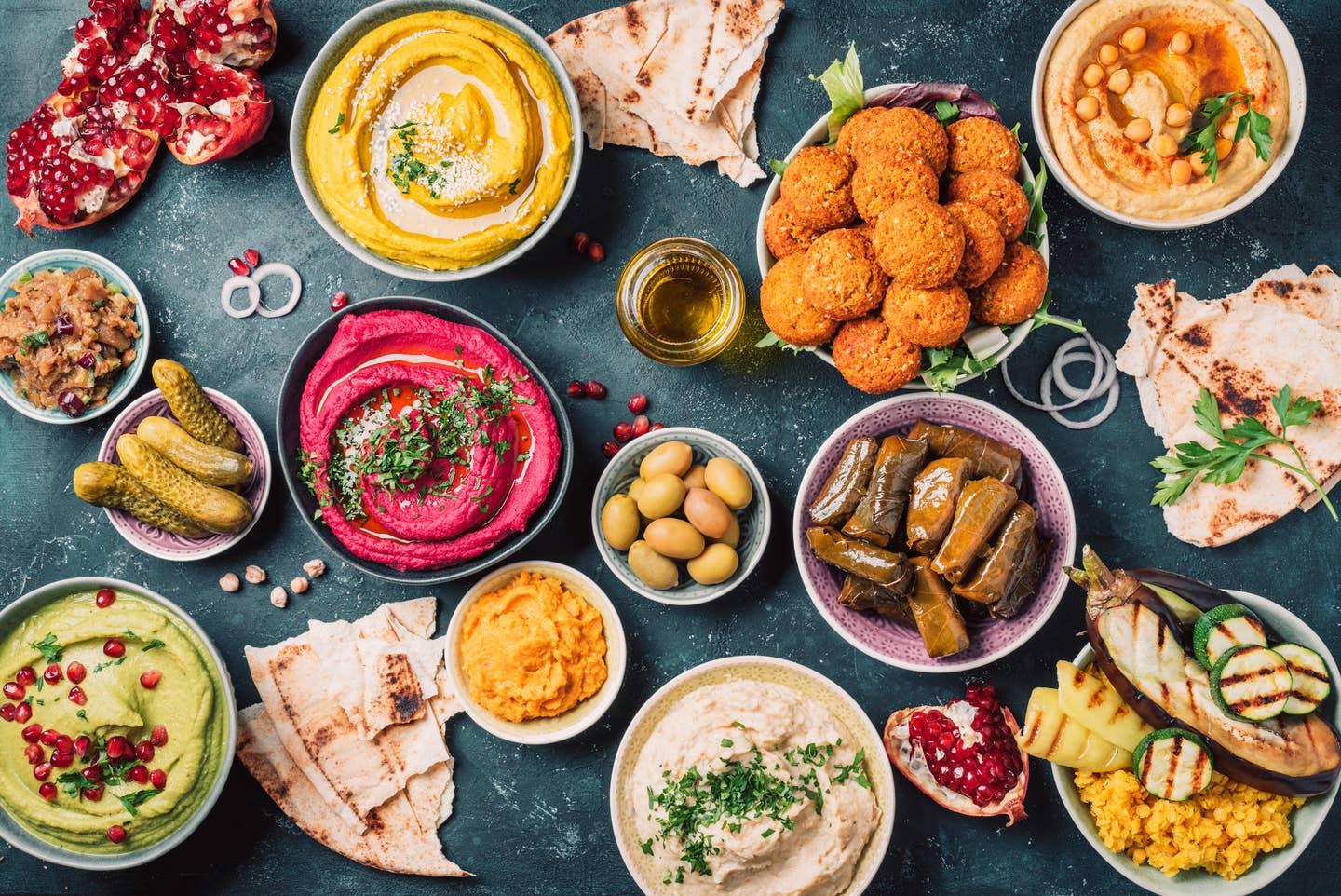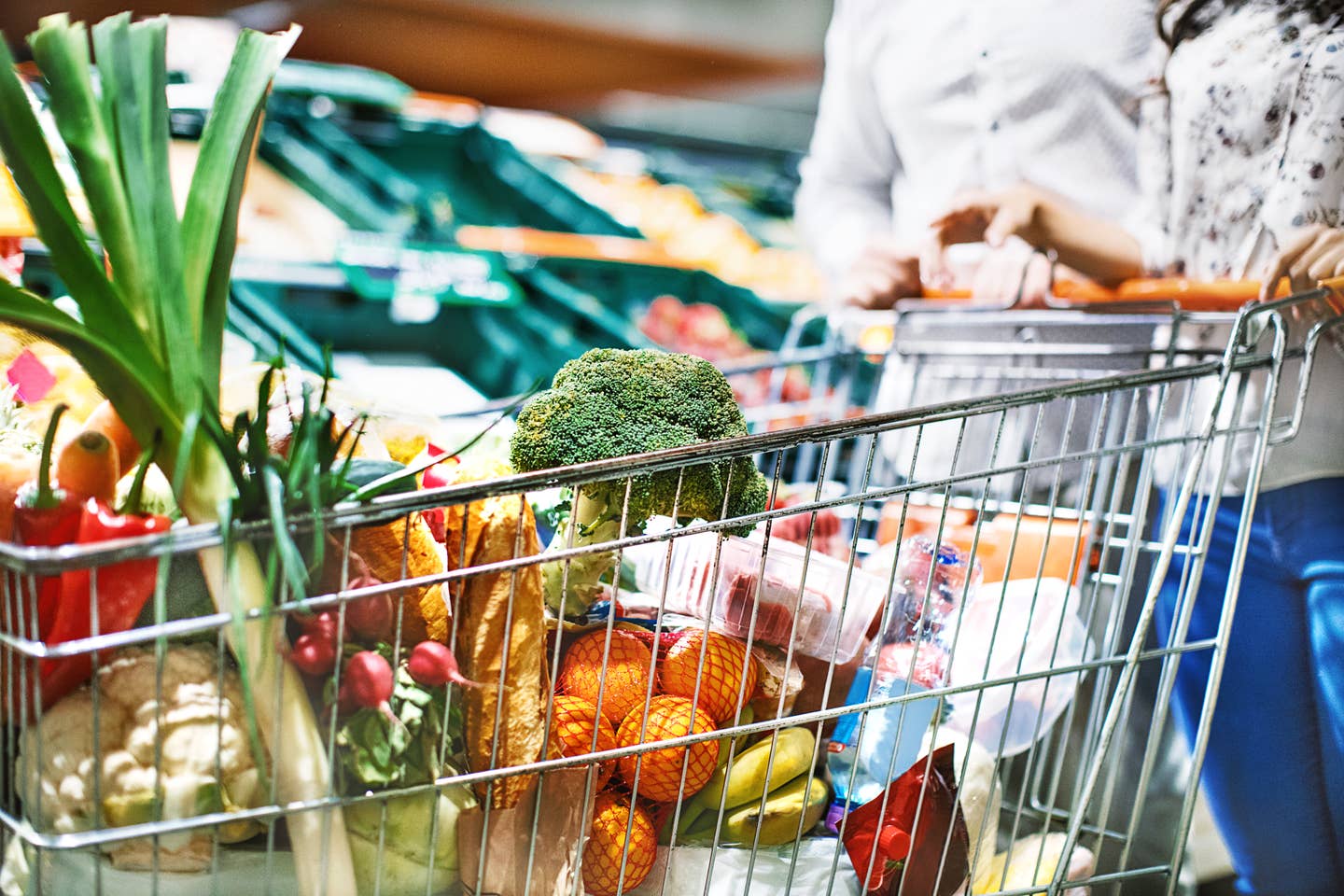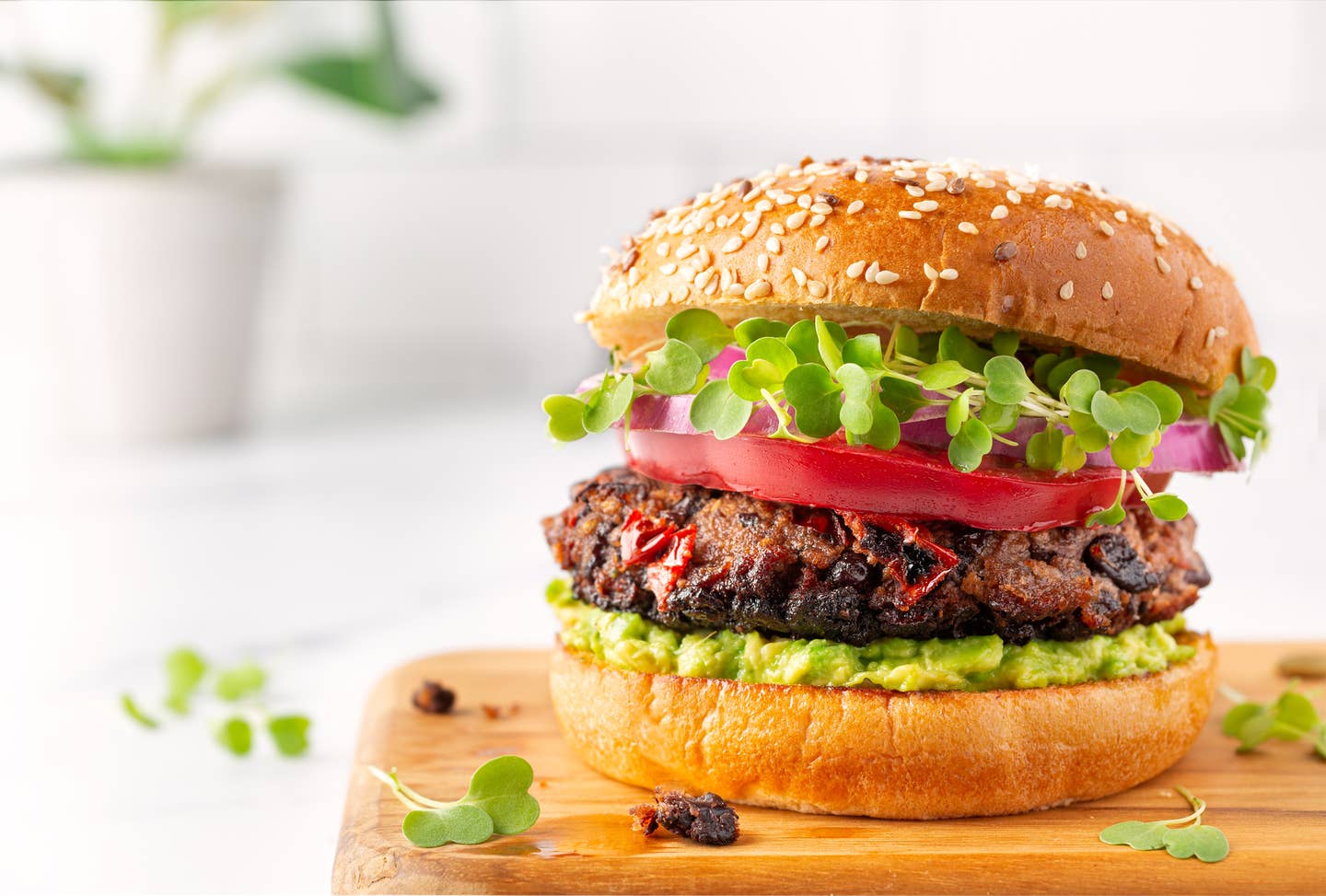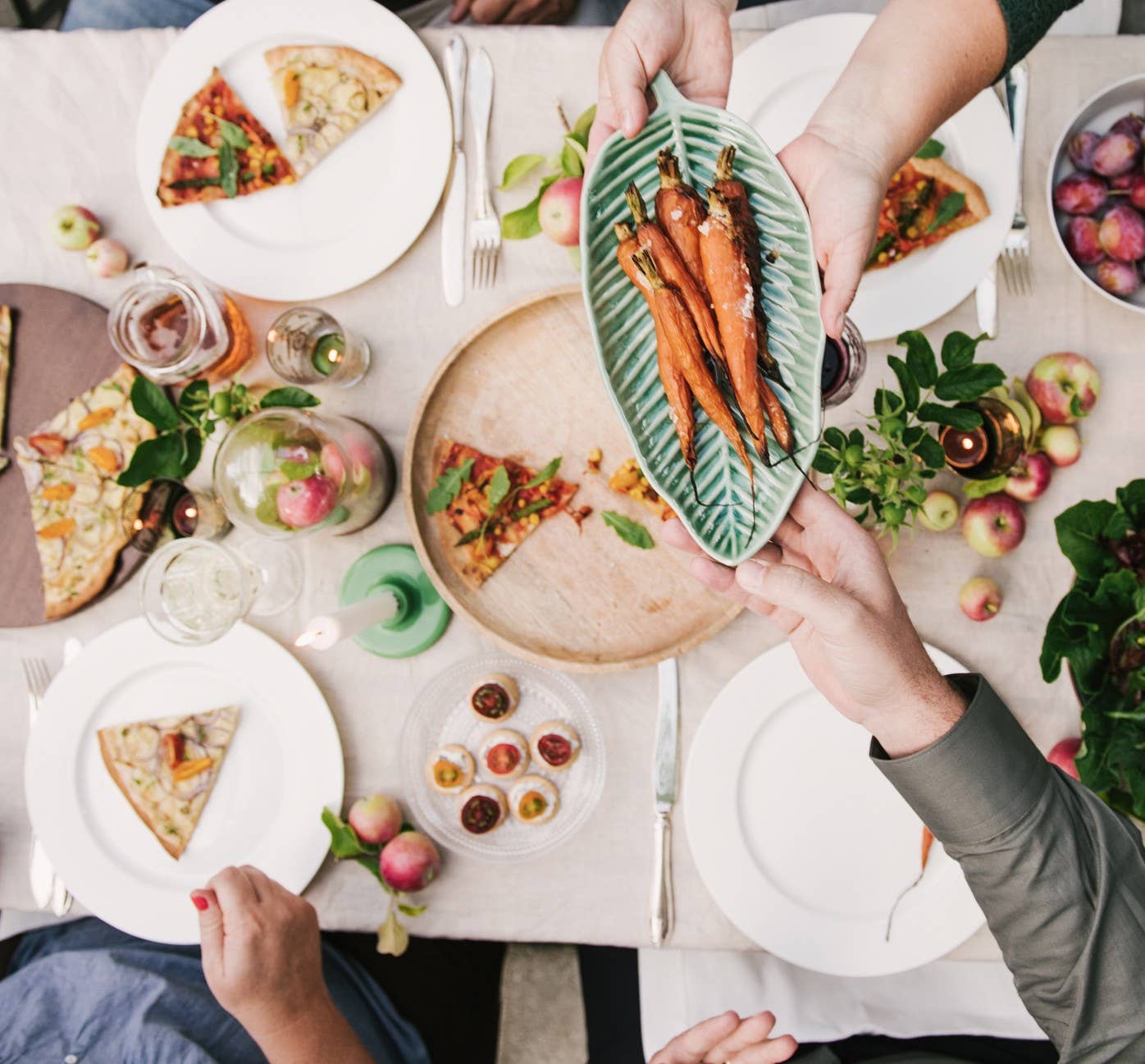
What is the Difference Between Vegan, Vegetarian and Plant-Based Diets?
You may have a co-worker who says they’re a "hard-core vegan," while your last date claimed to be a "plant-based eater," or your "classic vegetarian" friend might say to you she’s also now eating fish these days.
It can be tough to know the true definitions of what each of these terms means without making your head spin, not to mention how other people are interpreting them. (Can your friend even eat fish if she’s a vegetarian? That has to be cheating, right?) And when someone says they're "vegan" it can be polarizing to the rest of the dinner table–since your fellow diners may assume that saying you're vegan is also a way of judging them for ordering the steak. It's complicated and fraught. So let’s take the guesswork out of it for you.
Here, plant-based nutrition expert Julieanna Hever, MS, RD author of The Complete Idiot’s Guide to Vegan Nutrition and The Healthspan Solution defines the terms and what they include, so you can actually understand what your friends are talking about when they explain their eating habits.
And instead of having them all over for dinner together, may we suggest that you all head out to a restaurant together and try a new veg-friendly restaurant, so everybody can order exactly what they like. To "Find Vegan Near Me" check out the restaurant finder tool on The Beet, powered by Happy Cow, and our exclusive Beet City Guides, written by local experts.
What Does It Mean to be Vegan?
Includes: Fruits, vegetables, nuts, seeds, legumes, and whole-grain products, plus anything that is totally devoid of animal products or with trace elements of ingredients from animals.
Does not Include: Meat, poultry, fish, eggs, dairy, honey, or any animal byproducts.
Nothing with a face, a mother, or made by animals.
“Vegan is an exclusive definition,” says Hever. It basically says what you do not eat, which are animal products.” To be a vegan means you’re also not consuming products like honey since you are avoiding all animal product use, which includes the product made by bees. But as with anything, there can be some exceptions to this lifestyle. “I’ve heard people use the term, ‘bee-gan’ meaning they include honey in their diet as a vegan,” Hever says.
Many vegans choose to follow this diet for ethical, environmental, and health reasons or a combination of all of those factors. Some vegans also avoid wearing animal products like leather, suede, fur, shearling, silk, or wool. Others skip using cosmetics that are tested on animals and make sure to support companies that avoid all animal testing. Additionally, they skip any home or cleaning products that are derived from animal products. In general, The Vegetarian Society states that "vegans and vegetarians don’t eat products or buy products of slaughter." Vegans often feel under fire for stating their veganism, as this YouTube video explains, so they sometimes prefer to use the term "plant-based" as a way of describing eating a wholly plant-based diet and sidestepping the rest. But there is a thought among vegans that it's better to use the term and mainstream it rather than sidestep the topic.
What Does it Mean to be Vegetarian?
Includes: Mostly plant-based diet, with some animal products such as eggs and dairy.
Does not Include: Meat, fish, poultry
A vegetarian diet usually refers to being lacto-ovo vegetarian, meaning eggs and dairy are consumed, but no animal flesh, says Hever. Then there’s the Lacto-vegetarian, which means someone who eats dairy, but not eggs. An ovo-vegetarian is a person who eats eggs but not dairy. If someone says they’re a pescatarian, that means they are a vegetarian eating fish as well as eggs and dairy.
As you can see, vegetarianism has a little more of a choose-your-own-eating-adventure vibe than being a vegan does, which may make it easier to stick to long term. In short, vegetarians tend to eat a diet that mostly consists of plant-based foods, whole grains, seeds, nuts, and legumes, as well as dairy. As for what they buy and wear, they may or may not choose to wear and use products made from animal products.
What Does it Mean to be Plant-Based?
Includes: Eating plant-based foods such as fruits, vegetables, nuts, seeds, whole grains, and legumes
Does not include: High amounts of animal products, including meat, poultry, fish, dairy, eggs, cheese, and byproducts
The term "plant-based" is an inclusive definition, Hever says. “It has taken off in recent years since it's less extreme sounding than vegan, and basically means the person eats a whole-food, plant-based diet.” To eat plant-based means you’re eating vegetables, fruits, whole grains, legumes, nuts, seeds, herbs, and spices. It's basically the same diet as veganism but often it's motivated by a concern for personal health and the impact of agriculture on the planet and climate change without including some of the other tenants of activism, such as animal rights. Plant-based as a term is gaining ground as a way of discussing food and diet while leaving out a broader definition of ethical treatment of farmed animals, or animal welfare that vegans embrace.
When someone says they’re eating a plant-based diet, they may have a looser interpretation of this phrase and will eat a variation on plant-based, like the Mediterranean Diet (low in red meat, moderate in poultry and dairy, with fish and seafood several times a week) for health purposes.
What Does it Mean to be Flexitarian, Plant-Leaning or Plant Forward?
Includes: Mostly plant-based foods
Does Not Include: Being strict about it
A Flexitarian Diet is mostly vegetarian but with the occasional inclusion of meat. Similar to the variations of vegetarianism, picking a plant-based diet or one that is largely plant-based is a way to increase your consumption of healthy whole foods that are nutrient-dense, such as fruits, vegetables, nuts, seeds, and legumes while cutting back on animal products, processed foods, and excess sugar.
Plant-Leaning, Plant-Forward, and "leaning into plants" is a less strict way of saying they are trying to give up most animal products and adopt a mostly vegan or plant-based diet, but occasionally allows themselves to "cheat" by eating fish or dairy when the occasion arises. These individuals often are motivated by a combination of health benefits of giving up meat, and the impact on the planet. They also include people who want to be plant-based most days and meals, but can't achieve it all the time, either for social or personal reasons, so they define themselves as plant-leaning.
"People flirt with different ideas and interpretations for all of these diets," says Hever. “No matter what eating approach you choose, you'll reap more health benefits if you base your diet around whole, plant foods.” For more on how to do that, check out s's Beginner's Guide to eating a whole-food, plant-based diet.
More From The Beet
